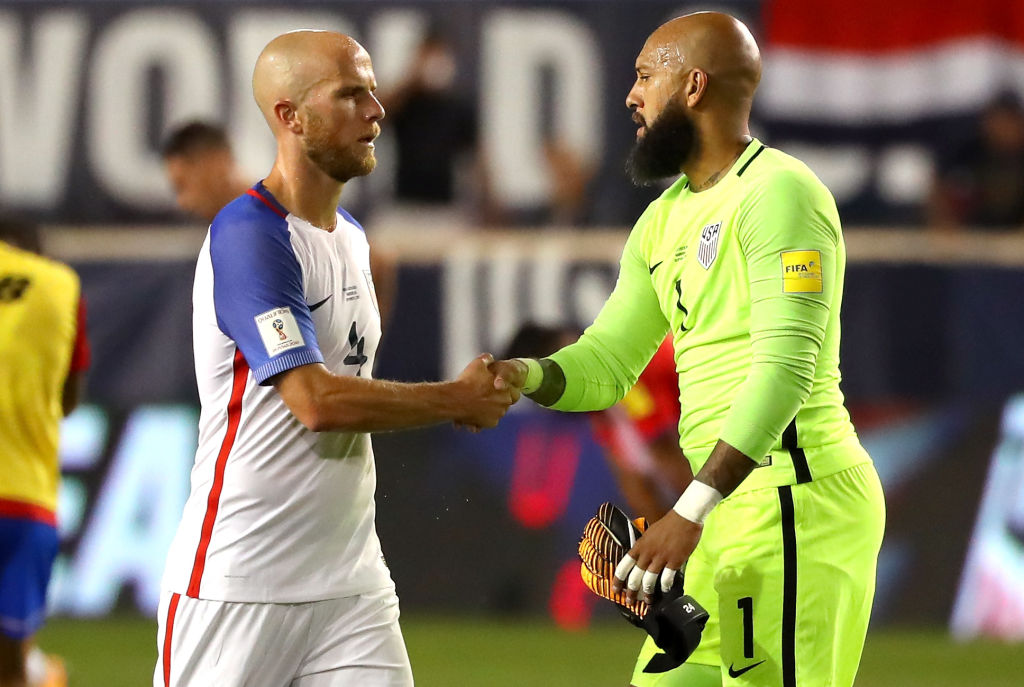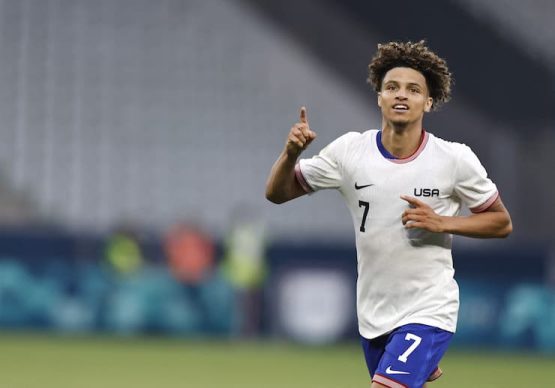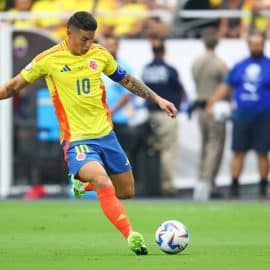Everyone expected the United States Men’s Soccer Team to dominate its weak CONCACAF competition in the World Cup Qualifiers, but the results have shown otherwise.
With the USMNT set to conclude the qualifiers beginning with Panama on Friday, there seems to be little doubt that the Stars and Stripes will garner enough points to punch their ticket to Russia in 2018. With Panama currently one point ahead of the U.S. and in the third spot in the hexagonal, it appears likely that the U.S. will pick up enough points on Friday and in Trinidad and Tobago on Tuesday night to overtake Panama and finish in the top three spots. This would allow them to avoid a playoff scenario against either Australia or Syria.
Even with the United States’ improved play that began when Bruce Arena took the helm after Jurgen Klinsmann was terminated roughly a year ago, concerns continue to arise as to why the Stars and Stripes aren’t more dominant within the CONCACAF group. After all, given their comparative population size and financial resources, shouldn’t the U.S. qualify near or at the top of the group? Here are five reasons why they’ve failed to do that.
Soccer isn’t the top sport in the U.S.
In a country that values (American) football, baseball, basketball and ice hockey, soccer is popular as a youth sport, but tends to fade in popularity as a player reaches college. While the payoff for a player entering the professional ranks of most American sports is in the millions, an entire team in Major League Soccer has a salary cap of $5.948 million, with most players earning under $100,000 per year.
While there are a handful of American players earning well above this playing overseas, other players that aren’t in the MLS compete in the lower divisions of American soccer such as the United Soccer League. They earn far less than MLS players make. After over two decades of MLS play in America, the crowds drawn to the matches have increased substantially, but the player salaries show only marginal increases. This factor continues to ensure that the top American athletes follow the money trail away from American soccer, and in turn decreases the talent pool for USMNT to pick from.
USMNT now relies on a few talented individuals, rather than building a complete team from top to bottom
While unquestionably a budding talent, relying mostly upon Christian Pulisic is not going to advance the U.S. beyond their current state. Currently playing for Borussia Dortmund, Pulisic is but one member of the team, yet this concept seems to be lost to Bruce Arena, as well as the America media. About to turn 19 years old, Pulisic is undoubtedly a very talented midfielder/striker and should improve in the next few years, but it is way too early to revolve the team around a teenager who is still developing.
The United States had their most successful run of international play in the past when the entire team was relied upon as a unit. The CONCACAF teams the U.S. have played against recently keyed on Pulisic — taking him out of his rhythm — and the final results reflected this. Without a more balanced approach, USMNT will not find more success in CONCACAF, or on the world stage.
The other CONCACAF squads are familiar with the U.S. players
With USMNT beginning its final push to advance beyond the hexagonal stage, many MLS teams have players missing due to international duty. But a closer look reveals that these same MLS players are not all playing for the Stars and Stripes. With the other CONCACAF teams in close geographic proximity to where MLS matches are played, many foreign-based players play against (or even with) the USMNT players on their club team.
As a result, they are well aware of their skillsets and what they can bring to the pitch, often being able to stop their opponent from excelling against them. This removes a sizable advantage the MLS players on USMNT might have had before, and can level the playing field within CONCACAF.
Clint Dempsey is in a serious slump
Clint Dempsey is a classic example of this. While previously having had an illustrious career both in the United States and overseas, Dempsey has had a less-than-stellar season. With the Sounders suffering through a spate of injuries and needing to rely on Dempsey for his goal-scoring prowess, he has failed to score in his past six games and is in a slump.
Arena will likely start Dempsey against Panama, but USMNT would be better off inserting another player in his place and having him available as a substitute if needed. Players need to earn their right to play by performing on the pitch. Arena is setting a bad example by continuing to play Dempsey while he struggles. And at 34 years of age, he’s not getting any younger.
Their record speaks volumes about how they’re performing
“You are what your record says you are,” as the great Bill Parcells once said. This quote came in reference to American football, but applies to all sports. If other teams in CONCACAF can beat the U.S. squad, clearly they are not the best team in the regional group.
There is little doubt that the U.S. will advance to play in Russia in 2018, but their outlook once World Cup play begins appears bleak. If USMNT have to rely on beating struggling teams like Panama or bottom-feeders like Trinidad and Tobago in order to grab third (or fourth) place in the hexagonal, they surely won’t fare well against international powerhouses from South America and Europe.
Add The Sports Daily to your Google News Feed!







